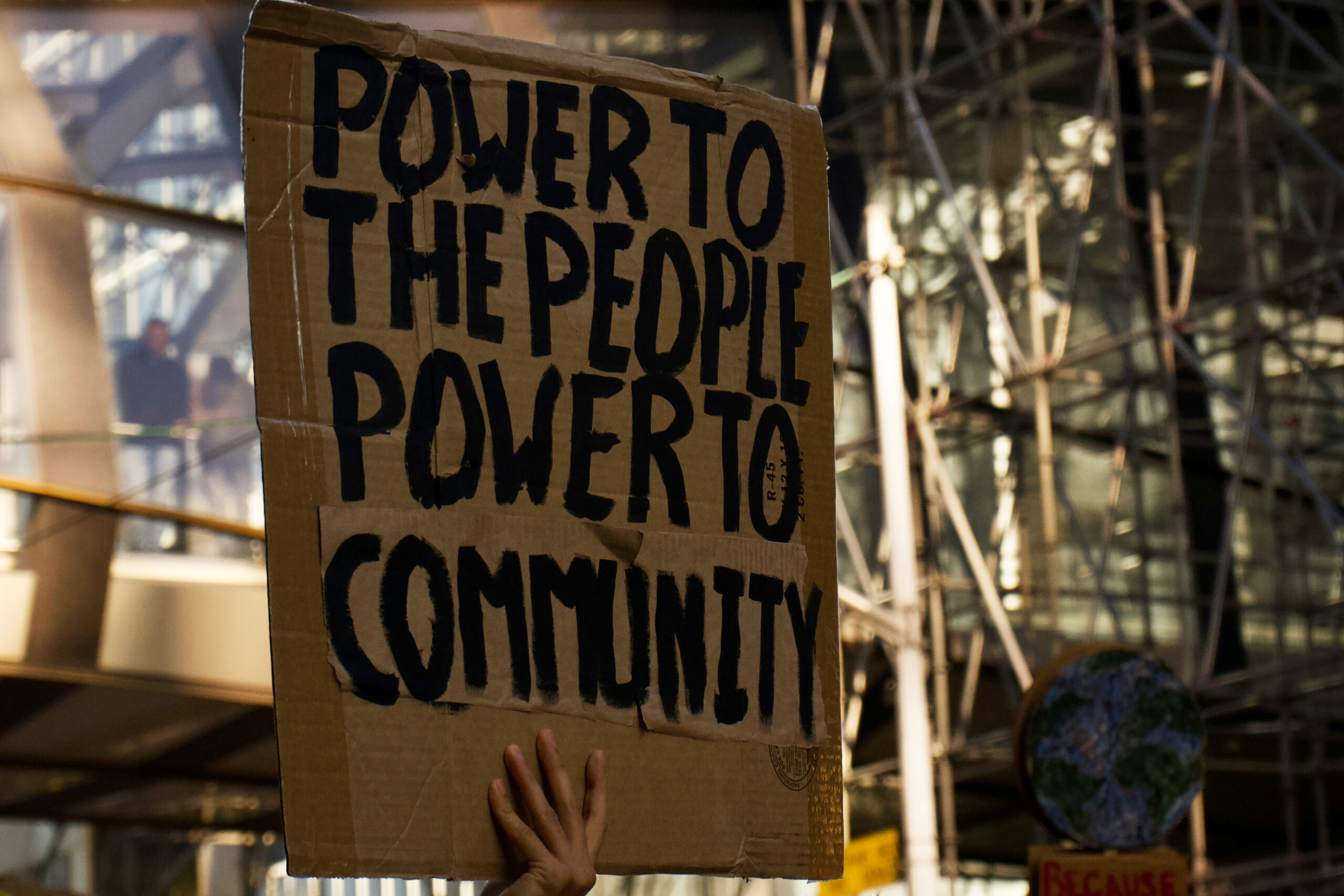Purniya Awan is a Contributing Editor at the Global Souths Hub. Her areas of interest are gender, law and development in the Global South. This blog post aims to highlight the history of Africa Day, the significance of celebrating the day and how quality education across the African continent can produce scholars fit for the 21st century.
Africa Day is celebrated every year on 25th May. The day provides an opportunity to highlight the cultural and economic potential that exists on the African continent, “and to acknowledge the progress that Africans have made while reflecting upon the the common challenges the region faces.” This is the message on a commemorative posted from The Parliament of the Republic of South Africa. This year’s theme is focused on empowerment in lifelong learning and education. What implications will this theme have on Africa’s youth and in what ways is the highly diverse region harnessing its immense potential?

Why was Africa Day established?
Africa Day traces back its origins to the struggle for liberation and independence across the African continent. On May 25th, 1963, leaders from 32 African nations gathered in Addis, Ababa, Ethiopia, to establish the Organisation of African Union (OUA). Their aim was to promote unity, solidarity, and cooperation among African states and advocate for the decolonisation of African territories. This historic event laid the foundation for Africa’s collective journey towards self-determination, freedom, dignity and community.
Africa Day has evolved into a celebration of African identity, culture and achievements. It serves as a platform to reflect on the progress made since the days of colonialism and apartheid while simultaneously working towards forming a progressive and innovative environment for the upcoming generation. The original idea behind Africa Day has proven just how necessary it was at the time to unite African communities to overcome the obstacles and move towards collectively embracing the enormous talent that the continent has to offer.
Education and Lifelong Learning in Africa
The United Nations Educational, Scientific and Cultural Organisation (UNESCO) alongside the AU, have chosen an important theme for Africa Day 2024: “Educate an African fit for the 21st Century: Building resilient education systems for increased access to inclusive, lifelong, quality and relevant learning in Africa.” The AU are urging governments to “accelerate towards achieving Sustainable Development Goal 4 (SDG4)”. The main consensus of this session was that efforts must be made to ensure that quality education is accessible to all, regardless of socio-economic status, geographical location or gender.
Africa faces the most significant challenges globally in primary education. Over one in four (29 percent) school-aged children in Africa remain out of school, according to the 2023 UNESCO Global Education Monitoring Report. According to another report published by UNESCO and AU, “Education in Africa: Placing Equity at the Heart of Policy,” sub-Saharan African countries host the largest out-of-school population globally. The report also explains that 9 out 10 school children still cannot read or write by age ten, causing concern for the quality of available education. Across Eastern and Southern Africa, 46 million school-aged children are out of school.
Counties in Africa face a myriad of challenges and opportunities to provide quality to education to all their citizens. This is especially the case in remote and marginalised communities, where there is often a lack of adequate infrastructure, shortage of qualified teachers, gender disparities and socio-economic inequalities. According to UNESCO, Africa needs at least nine new classrooms and 9.5 million additional teachers by year 2050. Traditional education systems often fail to equip learners with the skills and knowledge needed to succeed in the digital age, leading to a mismatch between education outcomes and the demands of the labour market. However, some countries do have resilient education systems based on skill development, for example the Seychelles, Mauritius, South Africa, Botswana, Kenya and Namibia.
African-focused Model for PhD Education
When it comes to higher education, Dr Eric Fredua-Kwarteng’s 2023 article in University World News: Africa Edition, Africa needs more PhDs, but they must be of high quality. As per the World Bank’s recommendation, African universities should actively look towards producing at least 100,000 PhDs in the next 10 years. Not only will this aid in creating jobs but PhD holders, “are required to produce research solving or providing insight into development challenges plaguing the African continent”. Fredua-Kwarteng also highlights the need for doctoral graduates to adopt a more African focused model for PhD education in order to become competent in making “implementable solutions for local and national challenges…”
A Myriad of Challenges and Opportunities in the Digital Age
Harnessing the power of innovation and technology is also essential for transforming education across the region. According to a World Bank Repost, only 50 percent of the countries in Africa have ‘computer’ skills as part of their school curriculum, compared to 85 percent of countries globally. Education must prepare learners for the challenges and opportunities of the 21st century. This entails updating curricula to incorporate skills such as critical thinking, problem-solving, digital literacy, and entrepreneurship.
Decolonising the Education System
Education should be viewed as a lifelong journey that extends beyond the traditional classroom setting. Across African universities, there has been a growing movement to examine what students learn and how. This concept is very well argued in “A is for Africa: Towards the Decolonisation of Knowledge Production” by Sylvia Tamale, an accomplished Ugandan academic and human rights activist. Tamale’s lecture delivered last year highlights the need for decolonised knowledge productions which bring hidden truths of African history and experiences back into focus. The one-sidedness of African history has to be unpacked and the Eurocentrism of the “formal” education system requires questioning. Contrary to the universal standards and beliefs, Western concepts of time, education, gender and development are limiting and do not fairly depict or represent “Native” culture; rather it reinforces the ”otherness” as compared to the white imperial way of life.

As Tamale stresses, “a re-turn to African educational pedagogies such as story-telling, socio-dramatic plays, folksong, parables and poetry” is an important step towards decolonising the method of producing and consuming knowledge. Tamale also says that “the decolonised/decolonial university in Africa should valorise the knowledge of indigenous artisans, traditional medicine practitioners, agriculturalists, ecologists, griots, musicians and other local experts outside the “ivory tower” of Eurocentric academia.” Tamale adds that it is important to stay conscious of the fact that knowledge is distributed through the language of the coloniser and in order to consume a more contextualised understanding of discourse and information, incorporating local languages in learning is imperative. Africa is hugely diverse with a huge wealth of linguistic knowledge, with 1.49 billion people speaking over 3,000 languages in 54 countries.
To fully understand the importance of African authencity and diversity, we need to unpack the western lens through which African countries and other Global South regions are perceived.
When we speak of decolonising ways of learning, there are various global platforms that are actively working towards helping to change this Westernised lens. The Boston University’s African Studies Centre has put together a list of conscious ways one can, on a personal level, through speaking or writing about Africa, alter the narrative as well as reading material and resources, as part of the “Decolonising the Curriculum through African Studies” project.
The majority of the world’s new workers (approximately 1 in 3 entrants) within the next 30 years could be from Africa according to a World Economic Forum (WEF) report, Why the world should look to Africa for education innovation. The report highlights the enormous potential. For this reason, it is imperative that special attention be paid to ensure that everyone living on the continent has access to high-quality education. Tamale’s powerful speech and the WEF report’s findings, both make cases that in order to bring about meaningful change, there is a need to collaborate with critical thinkers in the Global North as well as strengthen South-South relations in its commitment not to only decolonise and liberate the continent but also equip young Africans with essential skills that are desired by employers globally.
Supporting African Scholars and African Studies
Decolonising knowledge, as historian and decolonial/postcolonial theorist, Sabelo Ndlovu-Gatsheni puts it, “is to change the archive from which we draw what we know and that also means we recover that which has been displaced”. When it comes to postgraduate education, African scholars – in Africa and in the diaspora – make significant contributions to global knowledge ecosystem. However, the African continent is said to have contributed to only 2.2 percent of the world’s scholarly articles, according to a UNESCO Science Report 2020.
Scholars from African and the Global South face challenges with being heard. Tamale also argues in her talk that academic publishing in Africa is very small and primarily taken over by a few top international journals that act as gatekeepers to knowledge by commodifying academia, whereas research, articles and journals should be open-access so that knowledge can be a free entity that everyone can benefit from. For example, there has been a demise of Nigerian university presses and only a few functioning African university presses – a 2022 survey found only 15 active presses out of 52 that claim to still be working.
To support African scholars and African Studies, the journal, Third World Quarterly recently announced the launch of its “Kassahun Checole Prize” for the best and most innovative article submitted by an Early Career Researcher (ECR) in the field of African Studies. The prize serves as a platform to recognise the best work by both African writers and all those writing on African topics and has been set up in honour of the publisher, Kassahun Checole. It was Kassahun who established Africa World Press and Red Sea Press, providing high quality literature on the history, culture, politics of Africa and the African Diaspora. Kassahun has produced thousands of literature and hundreds of books – used as textbooks in various educational settings.
Amplifying the impact of African scholarship is critical. One organisation, Research4Life, is helping to bridge the gap by providing online access to academic and professional peer-reviewed content to organisations based in the Global South.

The Way Forward
In an era marked by rapid technological advancements, globalisation, and evolving societal needs, the importance of education cannot be overstated. In Africa, ensuring access to inclusive, lifelong, quality and relevant learning is not just a goal but a necessity for sustainable development and prosperity.
Educating Africa for the 21st century requires a collective effort and sustained commitment from governments, educators, civil society organisations, the private sector and international partners. By incorporating African values and the most useful Western concepts of education, we can unlock potential and empower individuals to thrive in an increasingly interconnected and dynamic world. After all, as Nelson Mandela always says, “Education is the most powerful weapon which you can use to change the world”.
Image (top) by Oladimeji Odunsi (Source: Unsplash)
Please note that the Hub operates under the Creative Commons Attribution-NonCommercial-NoDerivs 4.0 International license and our posts can be republished in print and online platforms without our permission being requested, as long as the piece is credited correctly.
To get the latest news from the Global Souths Hub follow us on X or LinkedIn or sign up to our monthly newsletter.



